Snoring in dogs, like in humans, can be a source of pleasure, irritation, or concern, depending on the listener’s perspective. Although all dogs can snore at some point due to various reasons such as their sleeping position or temporary blockage of their airways, some breeds are more predisposed to noisy behavior at night. Oftentimes, the dog’s anatomy, especially those with brachycephalic (short nose) features, plays an important role in their tendency to snore. However, personality, size, and health issues can also contribute to a breed’s likelihood of sawing logs stronger than your grandfather. This article will explore six dog breeds that tend to be heavy snorers, examine the reasons behind their deep sleep and offer insights into what makes snorers so noticeable. this.
1. English Bulldog
The English Bulldog is probably one of the most notorious snorers in the canine world, largely due to their brachycephalic facial structure. Their short noses and narrow airways create resistance to airflow, leading to characteristic snoring sounds while they sleep. Additionally, Bulldogs often have elongated soft palates and may be overweight, both of which can make snoring worse. Their relaxed demeanor extends to their sleep, often sleeping in positions that further obstruct their airways, turning quiet nights into symphonic events. Despite the noise, Bulldog owners often find this trait endearing, a unique aspect of sharing life with such a lovable breed.
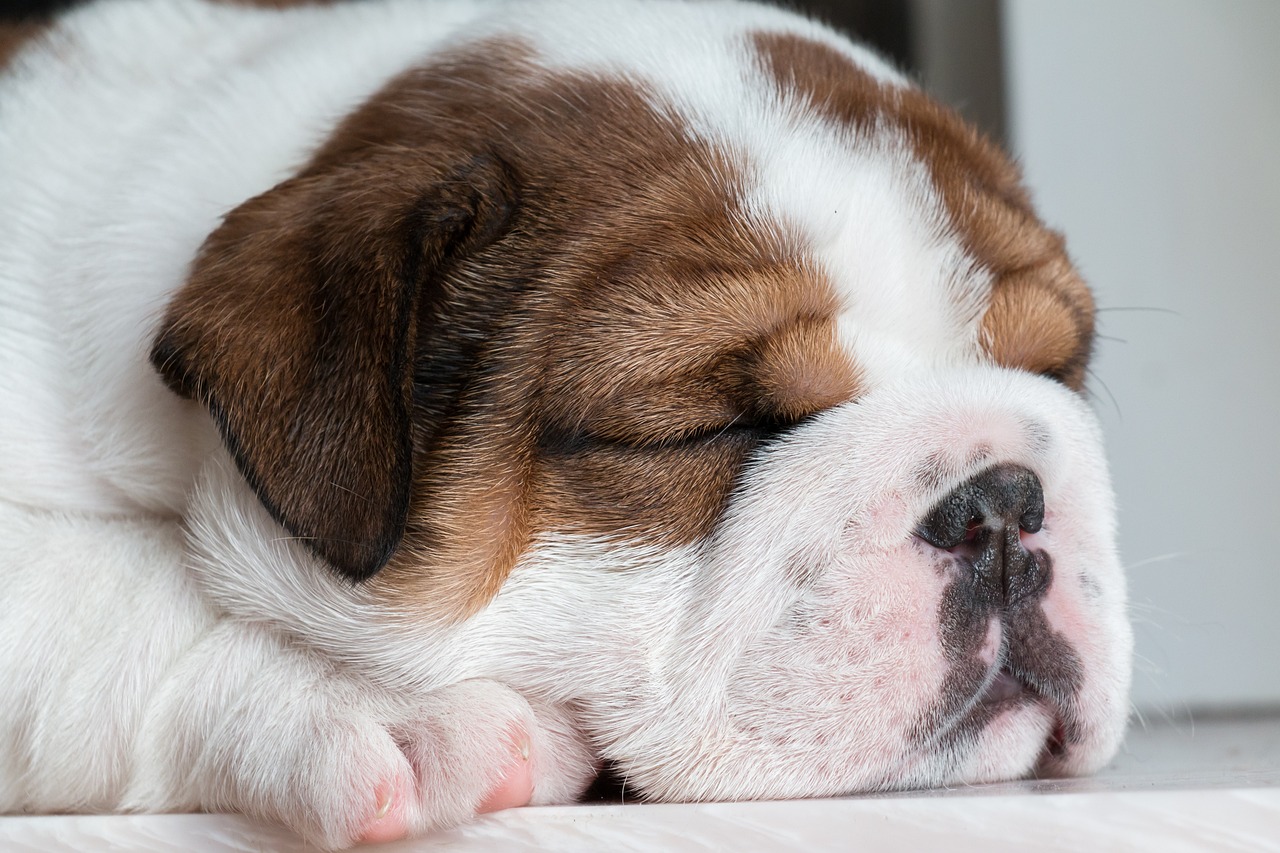

2. Pug
Pugs, with their dense faces and wrinkled skin, are also known for their loud snores. Like Bulldogs, Pugs are brachycephalic and often struggle with airway obstructions due to their anatomy. The folds of skin around their faces can further restrict airflow, leading to snoring that can be surprisingly loud for a small dog. Pugs’ tendency to get excited and overexercise can lead to fatigue and even louder snoring after a long day of play. While their snoring can be a potential issue for heavy sleepers, it’s just another part of their charm for devoted Pug lovers.
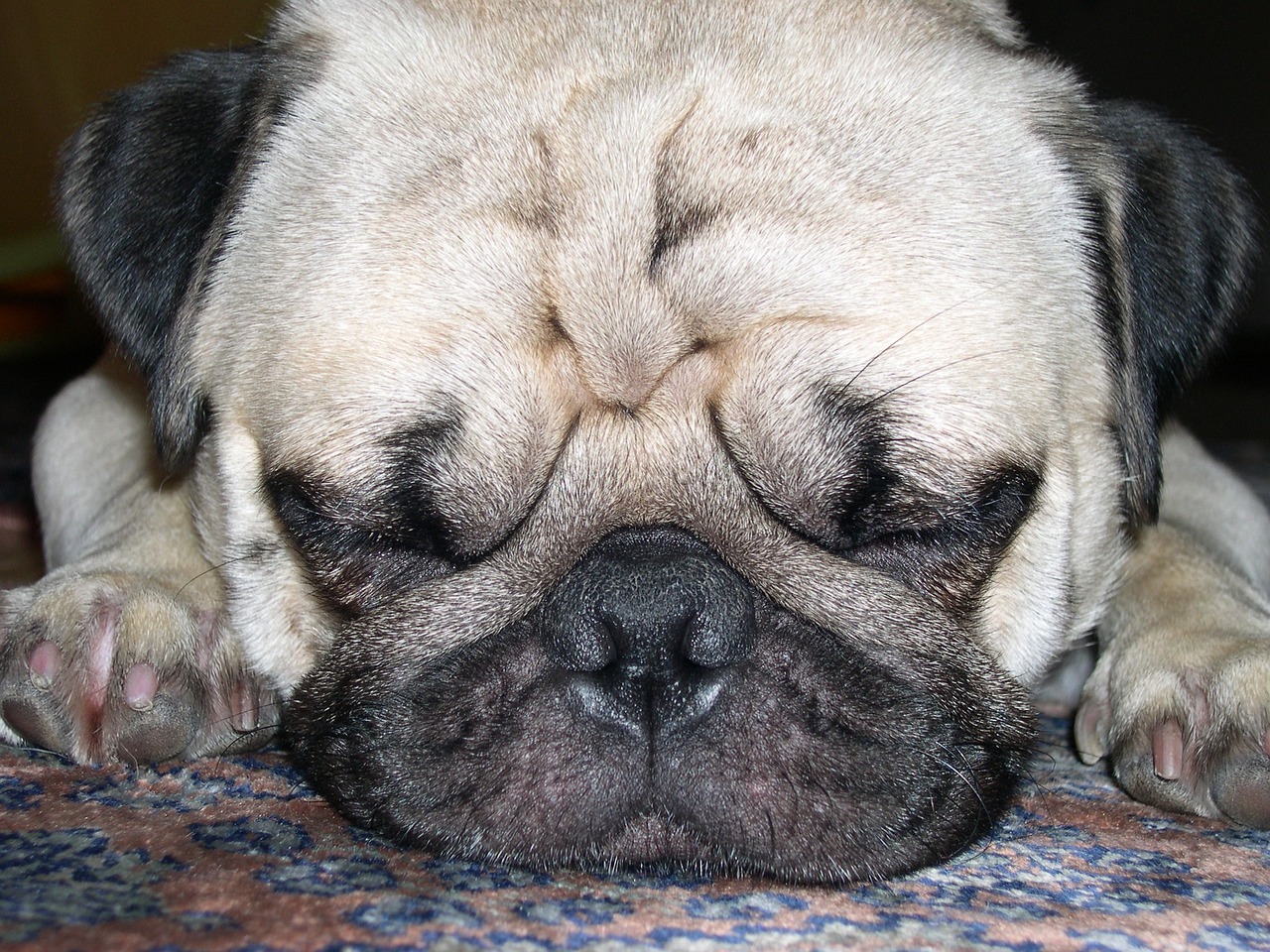

3. French Bulldog
French Bulldogs share the brachycephalic traits of their English cousins and Pugs, making them prone to loud snoring. Their flat faces and narrow tracheas are not conducive to restful sleep, resulting in an array of snoring sounds that can fill a room. Frenchies also have a propensity for obesity, which can make snoring worse due to excess tissue around the neck and throat. Despite the nocturnal noise, French Bulldogs are loved for their loving nature and playful demeanor, qualities that more than make up for any sleep disturbance they may cause.
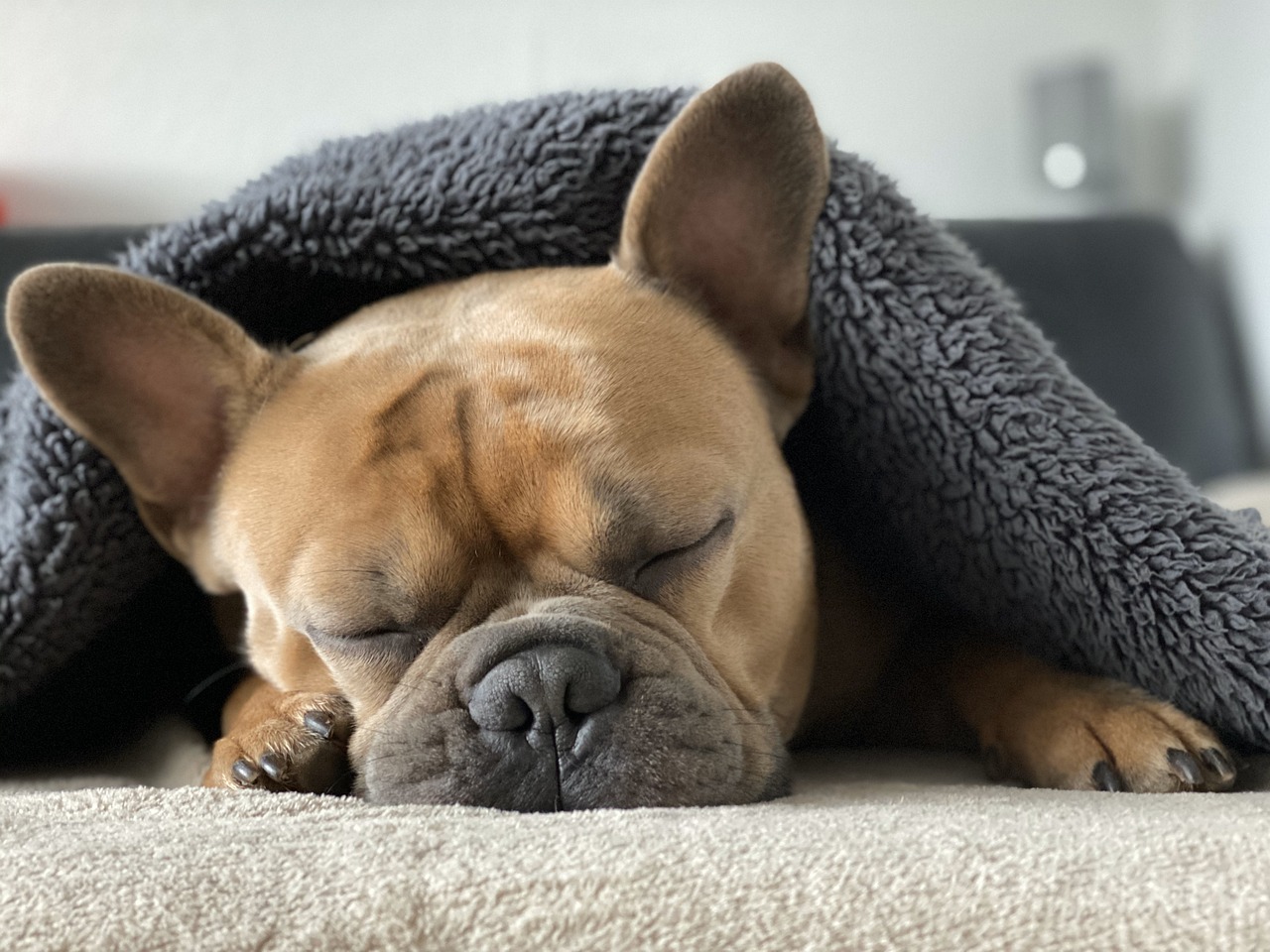

4. Boxer
Boxers are another brachycephalic breed known for their soft snoring. Their muscular build and deep chest do not prevent them from experiencing the same airflow restrictions as other short-nosed breeds. Boxers can sleep soundly, often in positions that don’t help their cause, leading to loud and sometimes hilarious snoring. The combination of their physical characteristics and their penchant for active dreaming can make sleeping with a Boxer in the room an unforgettable experience. Boxers are energetic and loyal companions during the day and, for some, disrupt sleep at night.
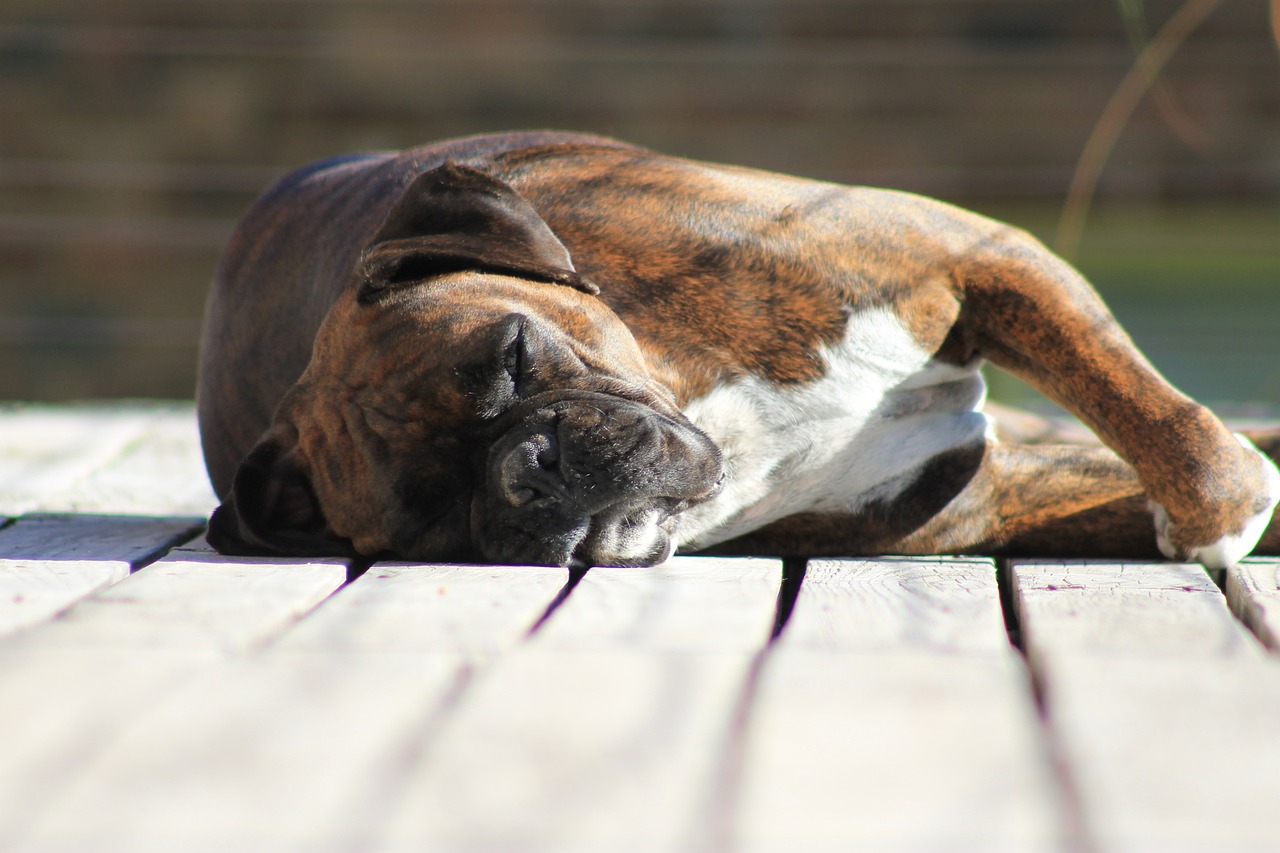

5. Shih Tzu
Shih Tzus may be small, but their snoring can be loud, thanks to their short muzzles and overall facial structure. Like other brachycephalic breeds, they face challenges with airway obstruction, which becomes very apparent when they sleep. Shih Tzus often prefer to sleep in relaxed, curled-up positions, which can further restrict airflow and lead to pronounced snoring. Their long hair may also play a role in warming their bodies and possibly contribute to more relaxed airways, making their snoring a bit more noticeable. Despite the soundtrack at night, Shih Tzus are valued for their loving and friendly nature.
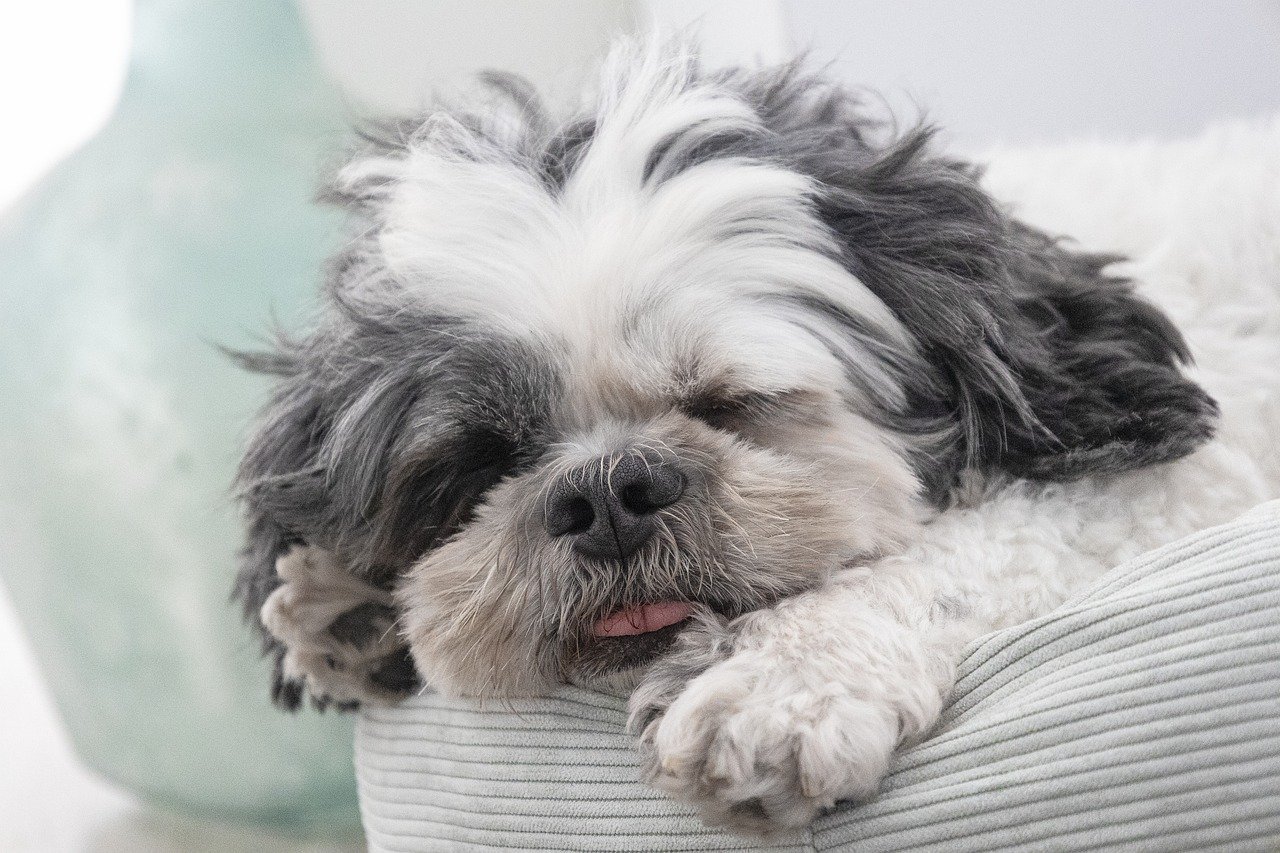

6. Boston terrier
Boston Terriers, with their tuxedo-like markings and expressive faces, are not only striking; they are also known for their ability to snore loudly. Their brachycephalic features mean that, like other short-nosed breeds, they are more likely to make various snoring sounds while they sleep. Boston Terriers are energetic and affectionate pets, but they are prone to obesity, which can make snoring worse. Their small size belies the volume of their snoring, which often surprises those unfamiliar with the breed’s sleeping habits.
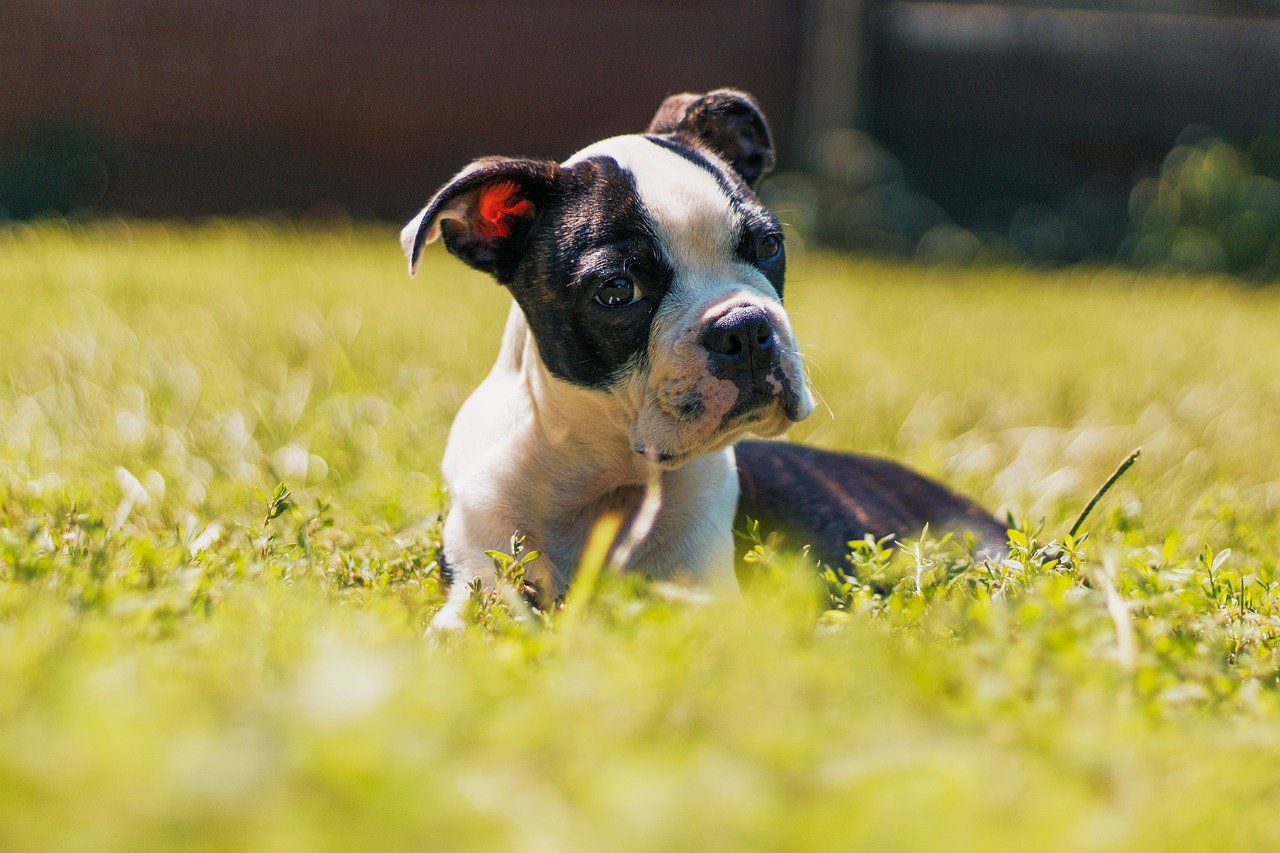

Although snoring is a common trait in many dog breeds, those with brachycephalic features, such as English Bulldogs, Pugs, French Bulldogs, Boxers, Shih Tzus, and Boston Terriers, are particularly prone to making their presence known, even in the dead of night. . The anatomy of these breeds contributes greatly to their snoring, but it’s their unique personalities and endearing qualities that endear them to their owners, regardless of the decibel level of their snoring. For fans of these breeds, the sound of snoring is just a reminder of the joy and companionship these dogs bring, turning what might otherwise be a nuisance into an oddity that’s both amusing and comforting.


